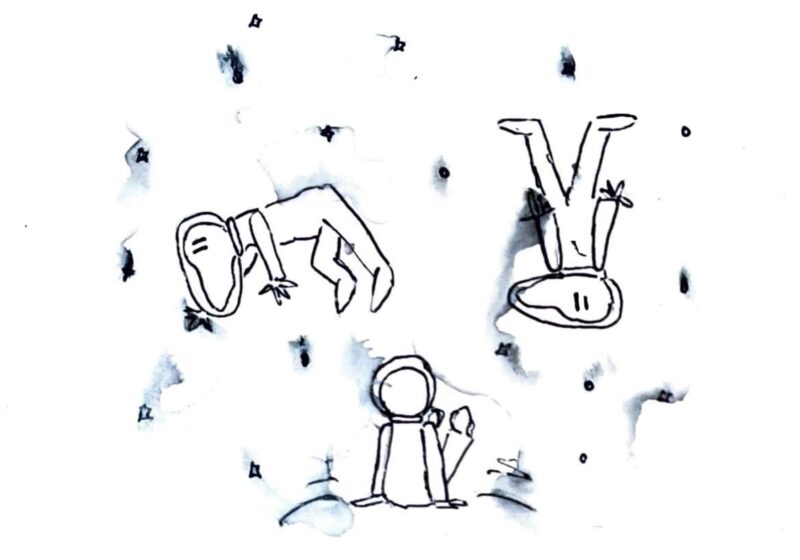UR Security released 27,000 copies of its annual report “Think Safe,” which details its procedures, policies and crime statistics for the past three years. The report was distributed to students, faculty, staff and others affiliated with the university.
“The ‘Think Safe’ brochure meets a requirement we have to distribute to all students, faculty and perspectives, upon request, information about campus policies on security, and also crime statistics and reference information to help people be better informed to protect themselves,” Director of Security Walter Mauldin said.
A main facet of the report is crime statistics that compare data from the 2001 calendar year to the previous two years. The reporting of these statistics is mandated by the U.S. Department of Education. Security must track the number of crimes that occur on campus, in certain off-campus buildings that are owned or controlled by the university and crimes committed on public property within or immediately adjacent and accessible to the university campus.
The crime numbers reflect a dramatic increase in drinking and drug abuse violations from 1999 to 2001. In 1999, security received 88 liquor law violations and 10 drug abuse violations. Two years later, drinking violations almost quadrupled to 331 violations and drug violations increased more than nine-fold to 93 violations.
University administrators were unsure of why the numbers have increased by such a dramatic amount but they speculated on a number of variables.
Dean of Students Jody Asbury speculated that the amount of drinking on campus hasn’t changed much, just the policy and the degree to which it is enforced.
“We have a change in monitoring and a change in policy over the past two years,” she said.
“The community is tolerating less well what is going on.”
The Dean of Students office rewrote the alcohol policy in the past two years and with the advent of freshman housing, freshman areas were made completely dry.
Mauldin agreed with Asbury’s assessment.
“I think that attention to misuse of substances, because they’re illegal and against policy, is higher than in previous years,” Mauldin said.
Mauldin also speculated on the effects of freshman housing to the increase in drug and alcohol violations.
“Freshman housing simply concentrates a group of students who are probably at the experiment stage,” he said. “My impression is that upperclassmen mixing with freshmen in some manner provided [them with] role models.”
Of the 331 alcohol violations last year, only one occurred off the River Campus at the Eastman School of Music. Eastman reported no drug violations.
There was no dramatic change in any of the other reported data to security. In the past three years, there have been zero murders and two rapes reported.
Mauldin said campus was generally safe.
In regard to crimes against persons he said “we’re very much on the low side compared to some of our peer institutions.”
He conceded, however that “it is always a possibility that somebody will be a victim of a crime and not tell somebody,”
Specifics
In addition to the crime statistics, the brochure gives information about security services, suggestions for safety and definitions of university policies and procedures.
“We are required by law to do it, but the information, we think, is also beneficial to students as a reference,” Mauldin said.
It encourages students to take an active role in helping with their own safety. “Maintaining a safe and secure community must be a cooperative undertaking,” according to the report. “Security staff alone cannot resolve every breach of good security practice.”
It encourages students to attend a personal safety seminar, report hazards to proper authorities, pay attention to signs of possible risk and remember university rules and procedures will planning parties and other events.
Many students don’t realize the entire role of security officers at UR. Besides patrolling campus to make sure it is safe, they let students in if they are locked out of their dorm rooms, take an injured student to the hospital for additional care or provide help with car trouble.
They also will help students devise a personal safety plan to help deal with stalking and other relationship problems.
“In some cases, it’s a reassurance of something they’d already thought of doing but wondered if it was a good idea,” Mauldin said.
Student reaction
Some students were unaware that the report had been published.
“I didn’t know it existed,” junior Zakia Barnes said.
Other students had read the publication and felt that the statistics were reassuring.
“I glanced at it but it looked like the same old stuff. I think I might have thought it was worse than it is,” sophomore Tamara Jones said. “I think the through-the-grape vine things make me more aware and more cautious than a piece of paper does.”
A full copy of the “Think Safe” report can be viewed at www.security.rochester.edu and questions or concerns can be answered by calling security at X53340.
Additional reporting by Karen Taylor.
Hildebrandt can be reached at thildebrandt@campustimes.org.



